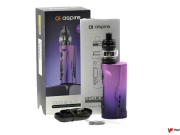Vaping is allowed in prisons in several countries, particularly as a harm reduction tool to help inmates quit smoking traditional cigarettes. The UK is one of the most prominent examples, where vaping products are available in prison tuck shops, and programs supporting vaping as a healthier alternative to smoking. This has been implemented as part of broader smoking cessation efforts, and reports have noted improvements in prison atmospheres and a reduction in inmate violence after the products were introduced in prisons.
In 2017, the UK’s tiny neighbour: the the Isle of Man, initiated a six-month pilot program allowing inmates to use e-cigarettes as an alternative to smoking cigarettes in its prison. The initiative was introduced to address the dangerous behavior of inmates smoking illicit materials like tea bags and banana skins, following a 2008 smoking ban. Amongst other things, the ban had led to over 800 power outages, as inmates used kettles and electrical sockets to light their makeshift cigarettes, creating safety hazards.
The pilot was deemed a major success by prison governor Bob McColm. He said that the introduction of e-cigarettes, which could be purchased at the prison’s tuck shop, allowed inmates to use them in their cells or outdoor areas, leading to several positive outcomes, including:
- A 42% reduction in offender adjudications.
- A 58% decrease in behavior warnings.
- A 50% decline in cell power outages.
- 25% of newly admitted offenders sought help to quit smoking.
- An annual savings of £8,500 on nicotine replacement therapies.
More prisons are warming up to the idea of allowing vaping
However, a new smoking policy inclusing e-cigarettes, was finalized by 2019, and vaping products were rolled out in Irish prisons soon as part of this measure. The spokesperson added that e-cigarettes would undergo security testing to ensure they can’t be used for anything other than vaping. Once approved, these devices would be sold exclusively in the prison’s tuck shop, with outside vaping products prohibited.
Similar measures are already in place in some U.S. jails, where some county jails and state prisons have adopted vaping programs as part of their smoking cessation efforts. And while vaping policies in US prisons vary by state and individual facilities, where introduced, vaping has been notably linked to a reduction in violence. The decrease in violence is attributed to inmates receiving their nicotine fix without the harmful effects of smoking, which may have eased tensions.
For example, certain facilities in California and New York have allowed e-cigarettes to help inmates reduce or quit smoking. In contrast, prisoners in Washington State are not allowed to use any cigarette alternatives. While vapes, heated tobacco, and snus are banned entirely, nicotine replacement therapies (NRT) can only be used with a doctor’s prescription that must be filed with each visit request, making it highly impractical for many.
The issue with banning safer alternatives in jails
Filter has recently highlighted that these policies have deterred many family members from participating in Extended Family Visits (EFV)s, where inmates can spend time with immediate family members in trailers. This is because the visitors, many of whom are smokers, have faced difficulties with the restrictions that prohibit them from smoking or using alternatives during their visits. Hence, the Washington Department of Corrections (WDOC)’s anti-nicotine policy creates barriers that undermine prisoners’ chances for rehabilitation and re-entry by straining family relationships, contrary to the department’s stated goal of supporting family connections and reintegration.
Al in all, evidence suggests that allowing prisoners to use vaping products and other safer nicotine alternatives, such as nicotine pouches or gums, can lead to significant benefits. Studies from various prison systems indicate a reduction in violence, behavioral issues, and contraband-related incidents when prisoners have access to these alternatives. Moreover, access to these products helps reduce smoking rates, promotes harm reduction, and improves the overall atmosphere in prisons, benefiting both inmates and staff while supporting public health objectives.













